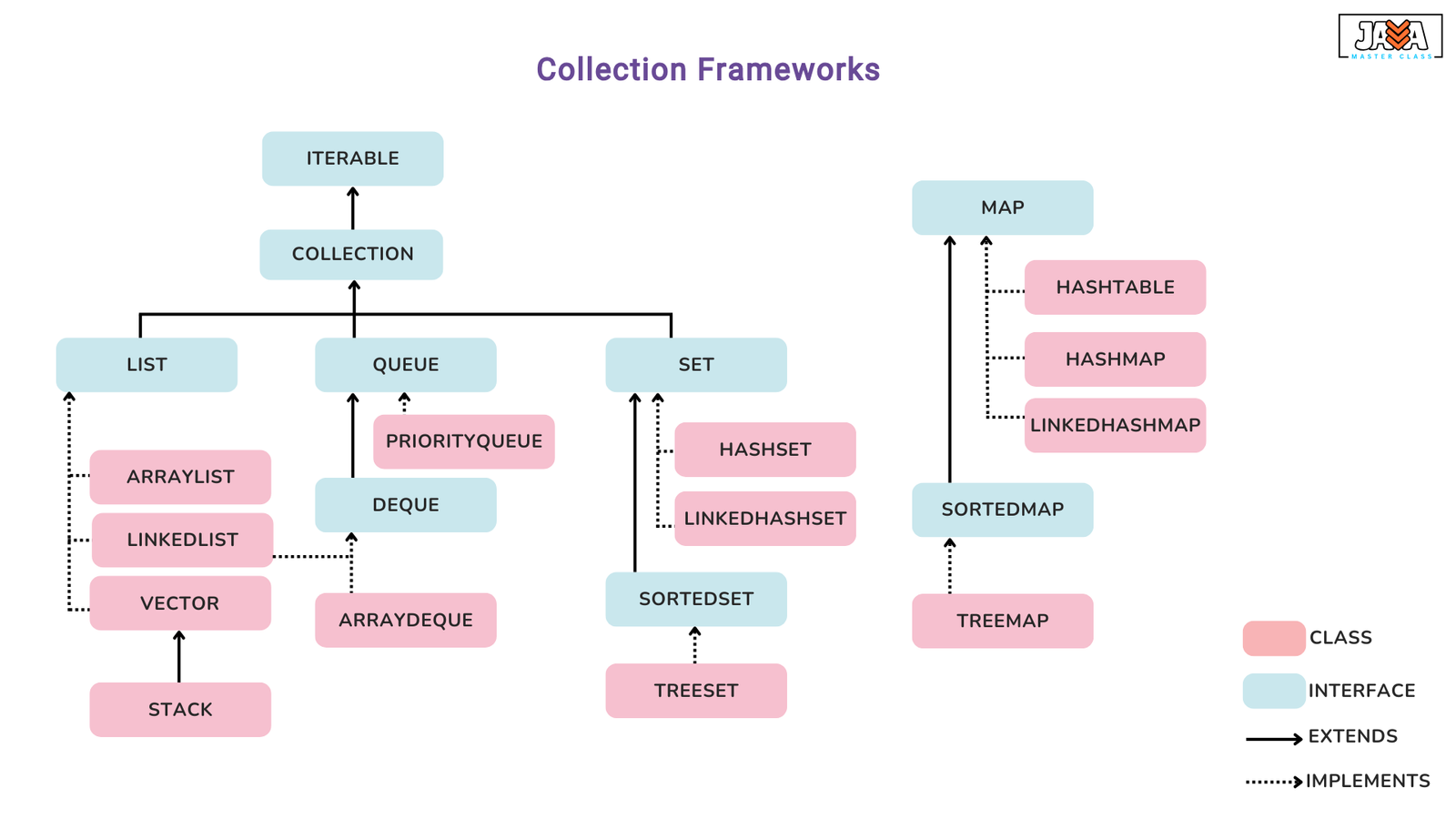Managing and manipulating data efficiently is a key aspect of application development. While arrays provide a basic way to store multiple elements, they come with limitations such as fixed size and lack of built-in functionalities for searching, sorting, or modifying data dynamically. To overcome these challenges, Java provides the Collection Framework, a powerful set of interfaces and classes designed to handle and process collections of objects in an optimized way.
The Java Collection Framework (JCF) is a standardized architecture that provides reusable data structures and algorithms for handling groups of objects. It simplifies programming by offering pre-implemented data structures such as Lists, Sets, Queues, and Maps, which are designed for different use cases.
Features of the Collection Framework
- Predefined Data Structures: The framework includes various built-in implementations like
ArrayList,HashSet, andHashMap, reducing the need for custom data structures. - Dynamic Sizing: Unlike arrays, collections can grow and shrink dynamically based on the requirements, preventing memory wastage.
- Efficiency & Performance: The framework provides multiple implementations optimized for different use cases. For example,
HashMapallows fast lookups, whileLinkedListis efficient for insertions and deletions. - Standardized API: The
java.util.Collectioninterface defines a common set of methods (such asadd(),remove(),size(),contains()) that work across different types of collections. - Thread Safety & Concurrency: Java provides thread-safe collection classes such as
CopyOnWriteArrayListandConcurrentHashMapto handle multi-threaded environments. - Utility Methods: The
Collectionsclass offers various utility methods for sorting, searching, and modifying collections easily.
Core Interfaces in the Collection Framework
The framework is built around several core interfaces:
- Collection: The root interface from which other collection types extend.
- List: An ordered collection that allows duplicate elements (e.g.,
ArrayList,LinkedList). - Set: A collection that does not allow duplicate elements (e.g.,
HashSet,TreeSet). - Queue: A collection designed for handling elements in a specific order (e.g.,
PriorityQueue,LinkedList). - Map: A special type of collection that stores key-value pairs (e.g.,
HashMap,TreeMap).
The Java Collection Framework provides a powerful, flexible, and performance-optimized way to manage data. Whether you need a fast lookup table, an ordered list, or a unique set of elements, the framework offers the right tool for the job. By leveraging JCF, developers can focus more on solving business problems rather than implementing complex data structures from scratch.

